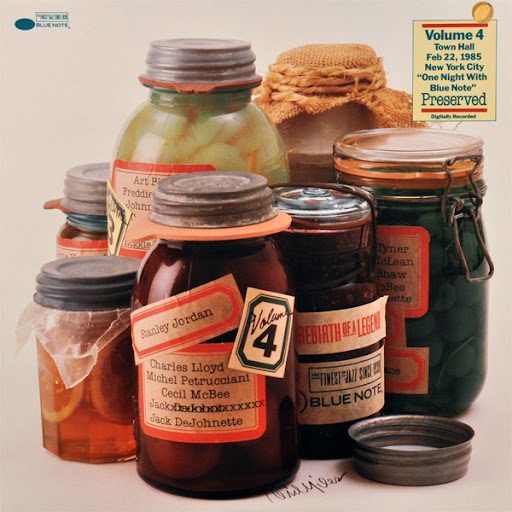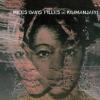-
Posts
3,779 -
Joined
-
Last visited
-
Donations
0.00 USD
Content Type
Profiles
Forums
Events
Blogs
Posts posted by Claude
-
-
That's so 20th century ...
With current technical means, it would easily be possible to offer lossless downloads (even in higher resolution that CDs), together with high quality downloads of artwork that could be more voluminous and include high quality scans of pictures, because there are no booklet limitations any more.
Those "destroyed" Selects will continue to be distributed worldwide, but as illegal downloads.
-
It's funny that this happens just one day before the most important event of this century, the release of the Beatles remasters

-
Looks like someone forgot to renew the domain.
And again, 4 years later

http://www.stevehoffman.tv/forums/
You can still reach the forum with the IP address, but the activity is lower than usual since many users cannot reach it.
-
Sorry, I was wrong, it's the other way around. The copyright lasts until the end of the year.
I guess the spanish reissues will hit the market very soon after that date.
-
Actually, the material has fallen into the public domain in Europe already at the beginning of this year. That's the legal rule.
-
Are you sure such a track exists?
Allmusic.com does not list it.
-
-
Is that "DeJohnt" under the xxxxxx?
Maybe it was meant to look like a typo that is corrected in the line below

-
This certainly has something to do with the center channel. It could be the configuration.
I have a stereo setup, and configured my Blu-ray player accordingly, which means that surround sound on DVD and Blu-ray gets downmixed to stereo. I recently watched the "Edward Scissorhands" Blu-ray, which has 4.0 sound (rather unusual for movies). I couldn't hear any dialogues, only sound effects and music, both through the HDMI connection (to the LCD) and the digital out (to the stereo digital/analogue converter).
In order to hear the complete sound, I had to change the surround configuration in the player, to indicate that I have a center speaker. This isn't logical (probably a bug), but it did the trick. With 5.1 DVDs I never had the problem.
So I would suggest to try out different surround configurations in the source device (cable box). Some of the configuration menues also have a test program to try if all the channels work.
-
After the US (probably more than 90%), the countries best represented in my jazz collection would be Germany, France, UK and Italy, in that order.
-
oihnly if its in MONO
why are the mono tapes just rotting there-- just rotting
According to Steve Hoffman, there are no real Blue Note mono master tapes from the 60's, i.e. tapes that use a different mix than the stereo recording. For the mono LP pressings, they made a single channel fold-down of the stereo tapes.
If that's correct, using mono tapes for reissues makes no sense. since it would sound the same as playing back the stereo release in mono on your equipment at home.
-
JPC is the second biggest german online retailer, after Amazon.de.
-
Jazz musicians are not necessarily the most knowledgeable about jazz history. Not every musician is a record collector or reads books about the history of the music. Different priorities.
I also think that among jazz fans every musician who recorded for Blue Note gets a "legend bonus", which is not automatically the case among jazz musicians, who care less about discographical facts. If Mobley wasn't a Blue Note artist but had recorded the same music for less famous labels, maybe we wouldn't be talking about a Mosaic set.
-
Plus, out of print and hard to find are not necessarily the same. Is there a Mobley CD which is difficult to get?
-
Hank's 60s recordings have been reissued steadily because they sold better than the 50s stuff did. They've had regular reissues, RVGs, Conns - and have been in print for a substantial portion of the last two decades. I can't see any reason why Mosaic would consider such a project.
That is the most important argument against such a set. Mosaic needs some exclusivity on the material. A Mobley 60's set could perhaps have been released succesfully before Blue Note started reissuing the albums as RVG, Connoisseurs, etc. Now it's too late, all the Mobley fans have the material on CD and too few would buy a Mosaic set just for the booklet and the collectible value.
Vinyl could be an interesting market for Mosaic, but today's vinly buyers prefer original album reissues rather than chronological box sets with bonus tracks. Given the price of high quality vinyl reissues ($20-30 per LP), a complete box set would also be too expensive, and most vinyl fans will want to pick their favourite albums.
-
I haven´t heard the Keepnews edition (Joe Tarantino's masterings are usually ok, but not great).
The best CD version I know is the japanese K2 remaster (VICJ-41530). But the OJC is very good too and doesn't require an upgrade.
-
One of our members posted that the Purple Pleasure vinyl reissue sounds great, like it came from the master tapes.
That was probably me. I can confirm here that the Pure Pleasure LP reissue sounds very good, as you normally expect from a reissue of a 1960 studio recording.
http://store.acousticsounds.com/browse_det...?Title_ID=28849
It's sad that this was never decently reissued on CD. Other jazz labels are constantly remastering their back catalog with little or no benefit, but Candid just keeps their crappy vinyl-sourced CD in print although it's now certain that a good tape exists.
-
Because the price is so low, I think this will rather be a budget reissue set with minimalistic packaging.
Maybe they included some new stuff (Isle of Wight, the Stockholm DVD) to give collectors a reason to buy the set as well. But the Isle of Wight concert is covered much better on the "Miles Electric: A Different Kind of Blue" DVD.
-
My intention, if I am not crazy, is to put the unit upright on heavy duty castors sold by Ikea and then rolling it a short distance to open the door when needed. I asked the salesperson repeatedly if the wheels would support the weight and height combination, and also about the center of gravity issue. He said yes, as long as the weight was distributed evenly.
The Expedit does a great job for LP storage (many record collectors in Europe use them fully stocked), but I would not trust it's stability if it is not placed directly on an even floor. I think putting it on wheels and moving it frequently will quickly make this a shaky affair.
-
That's correct, and that why slow recording/playback speed (for records or tape) was generally only used for niche products for which playing time was more important than fidelity (background music, non-musical voice recordings)
A number of recordings were pressed at 16⅔ rpm (usually a 7-inch disc, visually identical to a 45 rpm single). Peter Goldmark, the man who developed the 33⅓ rpm record, developed the Highway Hi-Fi 16⅔ rpm record to be played in Chrysler automobiles, but poor performance of the system and weak implementation by Chrysler and Columbia led to the demise of the 16⅔ rpm records. Subsequently, the 16⅔ rpm speed was used for radio transcription discs or narrated publications for the blind and visually impaired, and were never widely commercially available, although it was common to see new turntable models with a 16 rpm speed setting produced as late as the 1970s. -
b) Direct to disc records - I recall these from the late 70s/early 80s - never completely understood them but it had something to do with the disc being cut as recording took place. I might have the name wrong. There were some jazz titles but limited numbers prevented this from ever being more than a minority interest.
That's right. It was a niche product. The aim was to get rid of the tape recording, considered to be an intermediate step that reduced the sound quality, especially the dynamics. But the practical limitations were important: The playing time was limited to about 15-17 minutes per side, which had to be played live without interruption. The number of records that could be made from a direct-to-disc master was limited to a few thousand pressings. But of course a regular record could be made from the parallel tape recording.
Herbie Hancock's japan-only release "Dedication" was direct-to-disc:
http://www.allmusic.com/cg/amg.dll?p=amg&a...10:axfoxqthldje
Direct to Disc was abandonned by audiophile labels as digital recording appeared, which was - at the time - considered to be so superor to analogue tape that it made direct-to-disc superfluous.
d) The multi-CD autochanger in the boot of the car!!!!!I'm no expert on this (I never had a car), but I think they were quite succesful, before MP3 playback for the car appeared.
e) SACD - I've no reason to doubt the superior sound of these (I've never heard one) but this one clearly took music reproducing technology to a level where most listeners had no need to follow. I believe they are still being made.SACD has now become mostly a format for classical recordings (with multichannel sound)
DAT and DCC should not be mentionned together. DAT was a highly successful format on the professional studio market (as well as a backup medium for computer data), while Philips' DCC failed completely (direct competitor to Sony's Minidisc which was was much more advanced, being a disc format).
-
I've visited the Steve Hoffman forums a couple of times, and I think they have an explicit rule against "double blind" testing. I don't get it.
Not only the Steve Hoffman forum. This has been a controversial subject in the high end community for decades, and some online forums forbid such topics because discussions almost inevitably degenerate in flamewars.
Here's a Stereophile article from 1985:
-
-
For example, for the forthcoming Ahmad Jamal Argo it looks like the LP set will be a reduced offering with a bundling of the key LPs, whereas the CD set will be the full blown 'complete' package.
That makes perfect sense, since today most LP buyers prefer reissues of the original albums.
_forumlogo.png.a607ef20a6e0c299ab2aa6443aa1f32e.png)


Has Chesky thrown in the towel on SACDs?
in New Releases
Posted
It looks like they have considerably slowed down their releases, but all the new productions have been released on SACD.
This is the list of all their SACDs in chronological order: http://www.sa-cd.net/alltitles/17
The most recent one (Jen Chapin: Revisions - The Songs of Stevie Wonder) is from June 2009. Their latest "New York sessions" release is from November 2008.